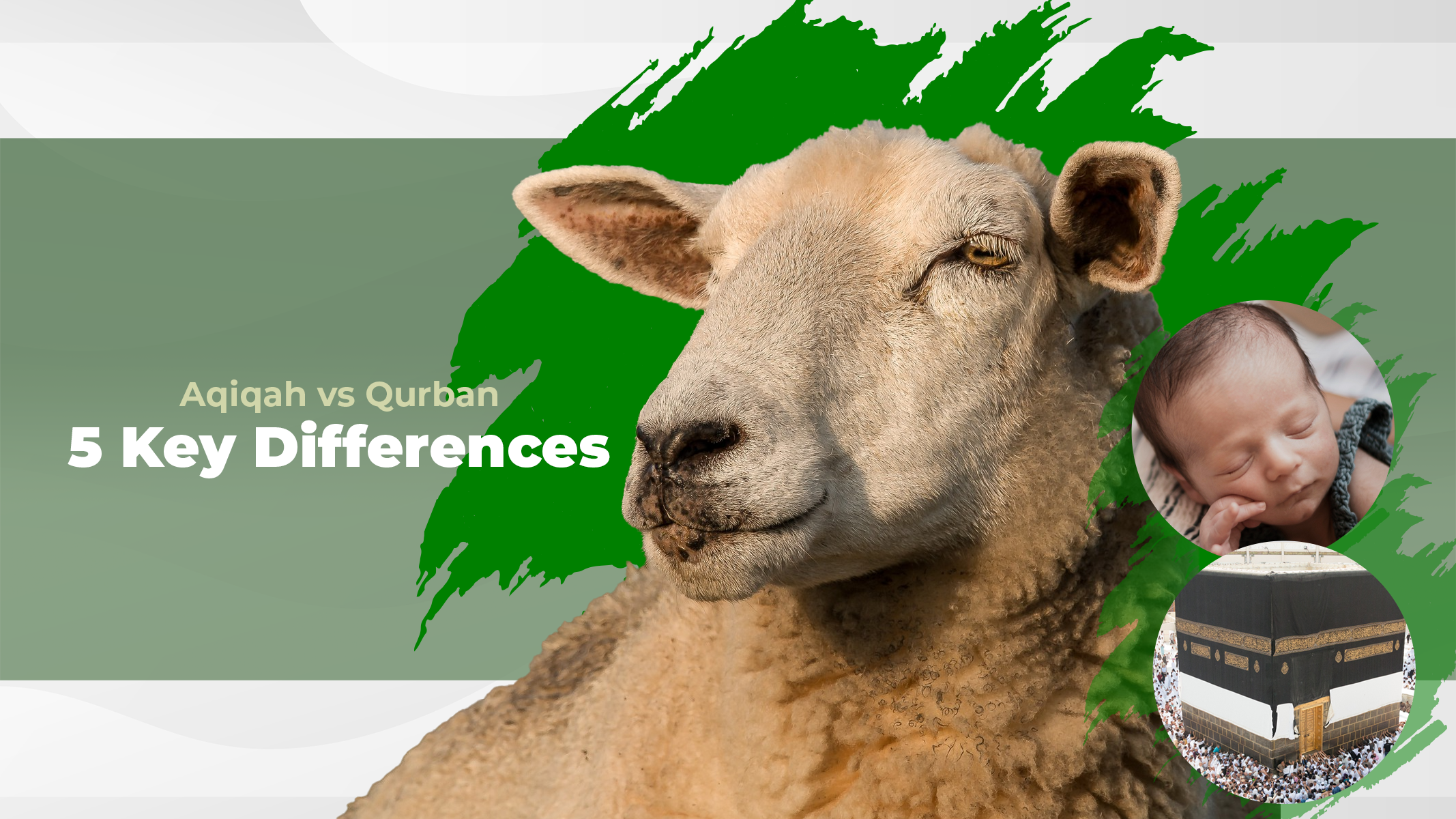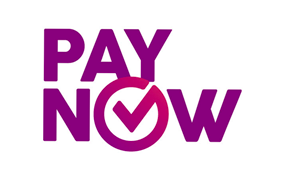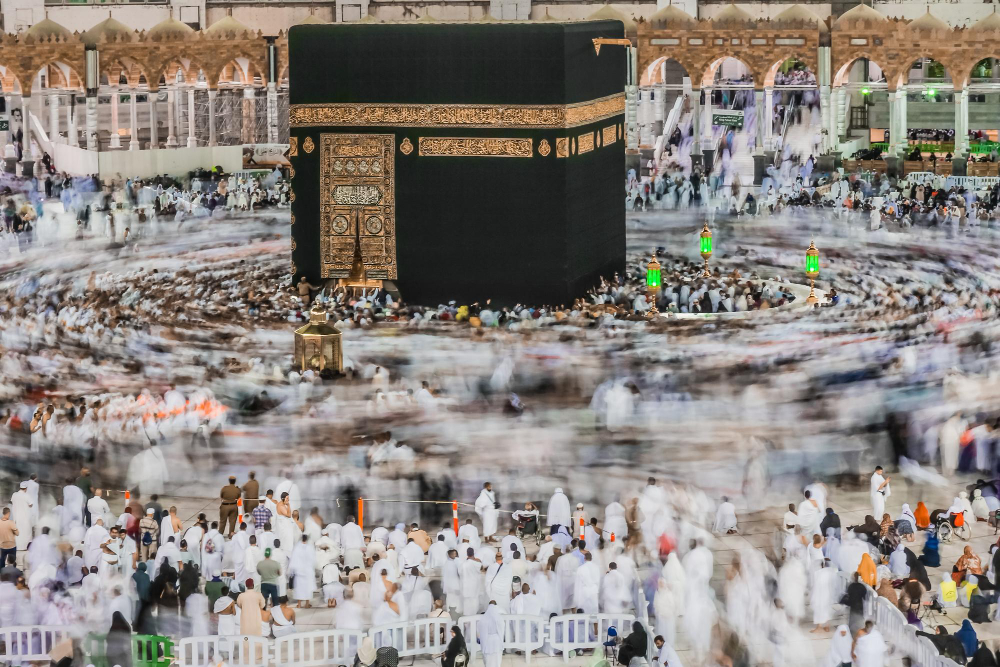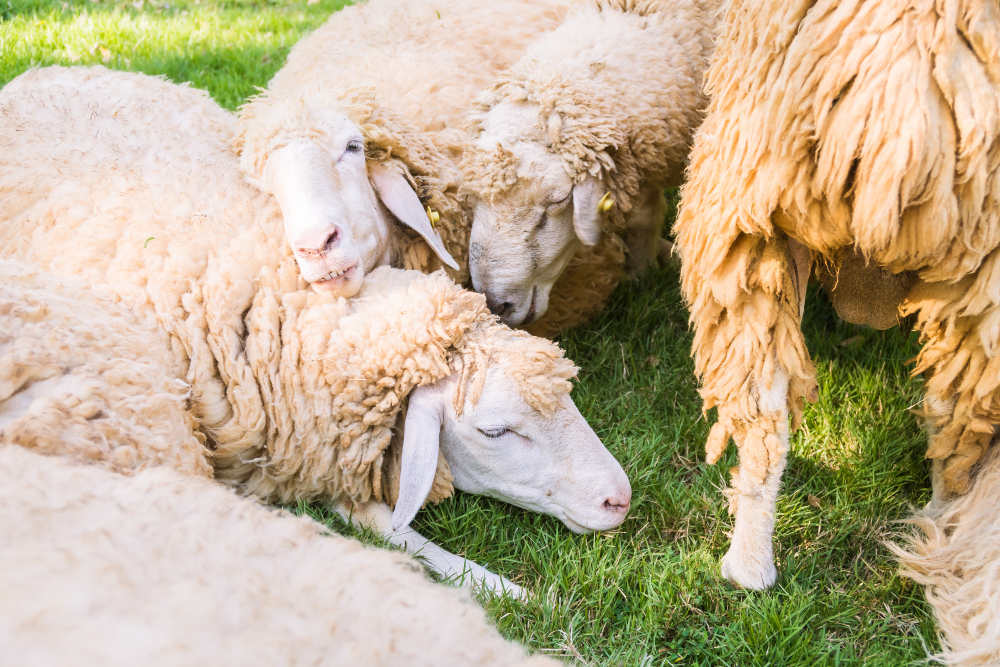
Aqiqah vs Qurban: 5 Key Differences
Many of us would be familiar with Qurban. You can’t really ignore this sacred rite, as it is often tied to one of the biggest Islamic celebrations. However, Aqiqah is probably lesser known and understood, and therefore is often misconstrued as carrying lesser weight as a form of ibadah.
In Islamic practice though, both Qurban and Aqiqah serve as important rites, connecting moments of spiritual devotion with acts of charity and community support. While they share certain elements of sacrifice and compassion, each practice has unique guidelines and purposes. In this article, we explore each of them to understand the differences, and hopefully, gain insight into how important it is to perform Aqiqah for your newborn.
Qurban: An Annual Act of Devotion
Qurban, or Eid al-Adha sacrifice, marks a global moment of faith and gratitude. The sacrifice of livestock is partially a commemoration of the story of Prophet Ibrahim (as) ’s willingness to sacrifice his son. Prophet Ismail (as), for Allah (swt)’s sake. For his act of sacrifice, Allah (swt) rewarded Prophet Ibrahim (as) with the honorification from Muslims for generations past his lifetime:
And when he reached with him [the age of] exertion, he said, “O my son, indeed I have seen in a dream that I [must] sacrifice you, so see what you think.” He said, “O my father, do as you are commanded. You will find me, if Allah wills, of the steadfast.” And when they had both submitted and he put him down upon his forehead, We called to him, “O Ibrahim, you have fulfilled the vision.” Indeed, We thus reward the doers of good. Indeed, this was the clear trial. And We ransomed him with a great sacrifice, and We left for him [favorable mention] among later generations: “Peace upon Ibrahim.” Indeed, We thus reward the doers of good. Indeed, he was of Our believing servants.
Surah As-Saffaat, Chapter 37, Verse 102-111
Indeed, the act of sacrifice of a livestock carries immense significance for the “doers of good”, as reflected in the above verses, as well as the verses below:
And the camels and cattle We have appointed for you as among the symbols [i.e., rites] of Allāh; for you therein is good. So mention the name of Allāh upon them when lined up [for sacrifice]; and when they are [lifeless] on their sides, then eat from them and feed the needy [who does not seek aid] and the beggar. Thus have We subjected them to you that you may be grateful. Their meat will not reach Allah, nor will their blood, but what reaches Him is piety from you. Thus have We subjected them to you that you may glorify Allah for that [to] which He has guided you; and give good tidings to the doers of good.
Surah Al-Hajj, Chapter 22, Verse 36-37
Aqiqah: A Once-in-a-Lifetime Celebration of New Life
Aqiqah, on the other hand, is a once-in-a-lifetime ceremony performed to celebrate the birth of a child. It is ideally conducted on the seventh day after birth. However, it can also be done on the 14th or 21st of birth. Most scholars have also agreed that Aqiqah can be done as an adult, should the parents could not afford to perform the ritual during the child’s early days.
Aqiqah is prominently featured via several accounts, among the most significant is this hadith narrated by Tirmidhi, an-Nasa’i and Abu Dawud:
“Every child is in pledge for his ‘aqiqah, which may be sacrificed for him on the seventh day, and he should be given a name and his head should be shaved.”
Some scholars interpreted the “pledge” as a chance for the child to intercede or intervene in the judgement of his parents on the Day of Judgement, while others intepreted that the pledge is a means to get rid of Syaitan and protecting the child; الله أعلم (Allah (swt) knows best).
Aqiqah vs Qurban: The Difference
Qurban and aqiqah are both an act of sacrificing a livestock animal for the sake of Allah. They are sunnah muakkadah, i.e. a highly recommended act for those who have the financial means to do it. Though similar, they are two different acts of worship (ibadah) in Islam, and thus have key differences.
Aqiqah
- Symbol of gratitude for the birth of child.
- Performed once in the child’s lifetime.
- Best performed on 7th day of birth.
- Boys require two livestocks to be sacrificed while girls only require one.
- Best (mustahabb or afdal) to distribute cooked meat (parents to taste the meat first).
Qurban
- Commemoration of Prophet Ibrahim and Prophet Ismail (as) act of sacrifice, and a reminder of submission and faith to Allah (swt).
- Can be performed many times.
- Performed during Eid al-Adha, from the 10th to 13th of the Islamic month of Dhul Hijjah, after the Eid prayers.
- No limit to number of livestock.
- Best (mustahabb or afdal) to distribute raw meat.
Why These Distinctions Matter
Both Qurban and Aqiqah exemplify values of charity, gratitude, and community. Through Qurban, Muslims globally honor their commitment to faith and submission, amidst a background of potential lost and sorrow (Ibrahim (as) losing a child). Meanwhile, Aqiqah celebrates new beginnings by welcoming a child. Recognizing these practices helps us appreciate the broader framework of compassion and spiritual connection embedded in Islamic life.
Article-Related Products/Services


Questions?
Drop us a WhatsApp and we'll be glad to assist!
Mondays to Fridays 9.30am to 5.30pm
Closed on Sat, Sun, PH
Or contact us via webform
Sales Office
62 Ubi Rd 1,
#05-18 Oxley Bizhub 2
Singapore 408734
Operational Hours:
(Mon - Fri) 9.30 am to 5.30 pm
Closed:
Sat, Sun and PH
We Accept
 |
/ Bank Transfer






